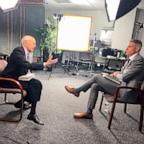Credit card issuers pile on new fees
— -- For months, issuers have raised credit card rates and fees at a dizzying pace. Now, a growing number are starting to tack on new card fees for inactivity or purchases made outside the U.S.
In June, Fifth Third Bank began charging a $19 fee if credit card borrowers have no account activity in 12 months. Discover now levies a 2% fee on purchases made outside the U.S., and Chase has introduced a $30 annual fee on its popular Freedom credit card for certain cardholders.
Citigroup, meanwhile, has rolled out a policy where certain credit card borrowers who pay late are subject to a "reinstatement fee" to be able to redeem accumulated points for rewards. This fee is currently $0. But it won't stay that way, predicts Robert Hammer, who consults with the industry, if Citigroup finds cardholders aren't objecting to the policy. Citigroup spokesman Samuel Wang says, "We currently have no plans to raise it."
The fees represent issuers' latest attempt to mitigate the effects of a credit card law passed in May, which restricts rate increases and marketing to college students. Analysts say that because most provisions don't take effect until February 2010, issuers are finding ways now to bolster their income despite consumers' precarious financial situations.
Issuers are "hoping to slip in fees where they're least likely to be noticed," says Adam Jusko, founder of IndexCreditCards.com, a card comparison site.
One fee making a comeback is the annual fee. In this economy, issuers are sending fewer credit card offers to U.S. households, yet a higher proportion of the offers have fees, according to Synovate, which tracks direct mail.
Issuers justify the new fees as a way to respond to the tough economy or keep their prices on par with their competitors. Chase also points out that Freedom card borrowers who don't want to pay an annual fee still get a reward program with 1% cash back on purchases. This new program, however, tends to be less generous than the old one, analysts say.




